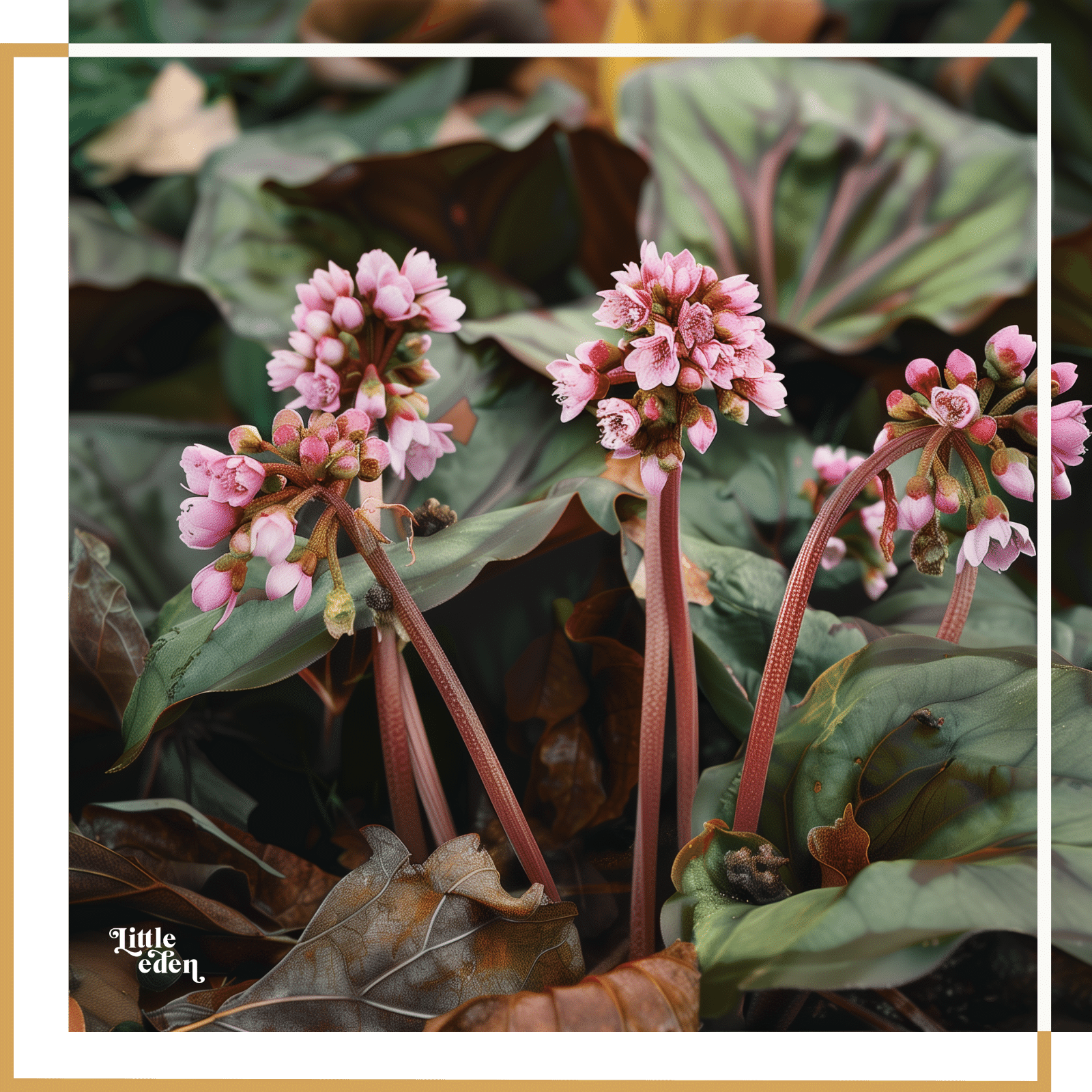Little Eden
Elephants Ears Care Guide
Elephants Ears Care Guide
Whether you're just starting out or an experienced gardener, our essential care guide will help you grow your beautiful Elephants Ears in your garden.
Elephant Ears stay green all year and grows to 30-50cm tall with purple-pink flowers in spring. It has red stems, bronze-green leaves that turn red in winter, and is good for producing flowers and resistant to frost.
QUICK FACTS
 Shrub, Evergreen
Shrub, Evergreen
 Suitable for small gardens
Suitable for small gardens
 Autumn colour
Autumn colour
 Dramatic foliage
Dramatic foliage
 Safe for children
Safe for children
 Avoid if you have pets
Avoid if you have pets
Botanical name
Botanical name
Bergenia Eroica
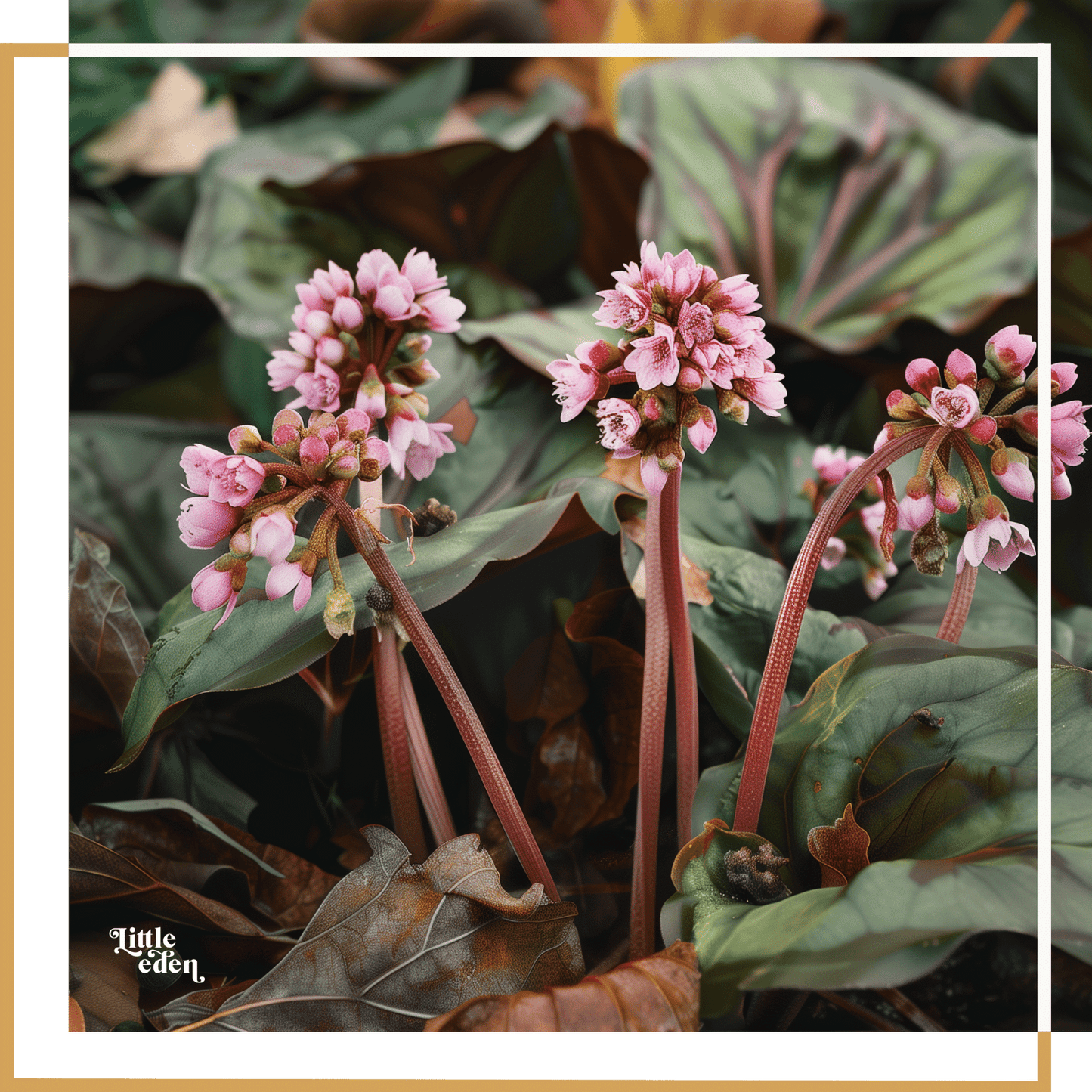
Where to plant
Choosing the right spot is important for your Elephants Ears to thrive with the right amount of space and sun.
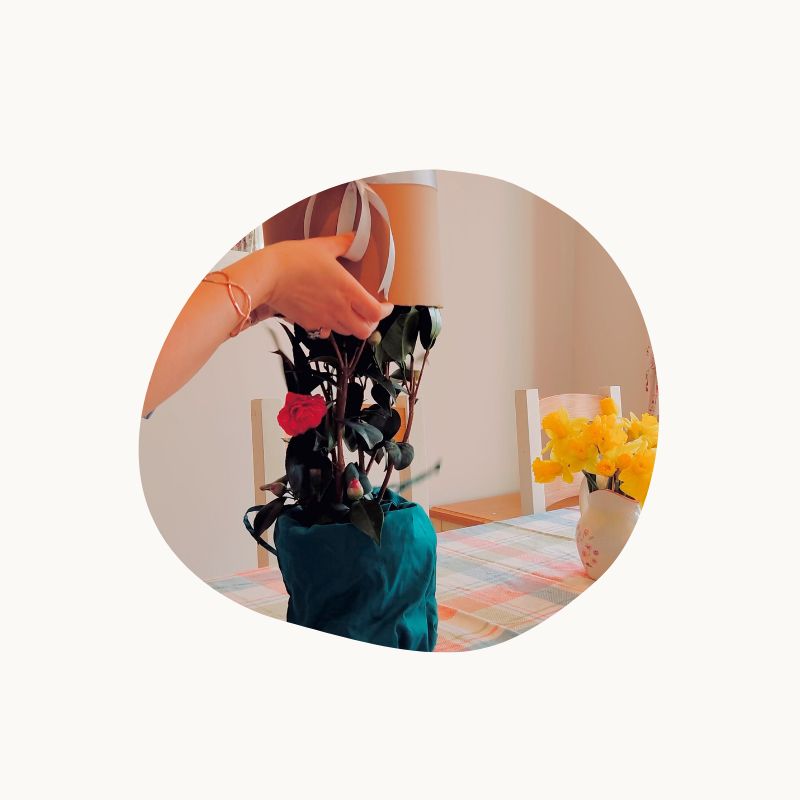
STEP 1
Prepare your new Elephants Ears
Unpack your gift as soon as you can, it might be thirsty for some water (if the soils dry) and will be missing the light!
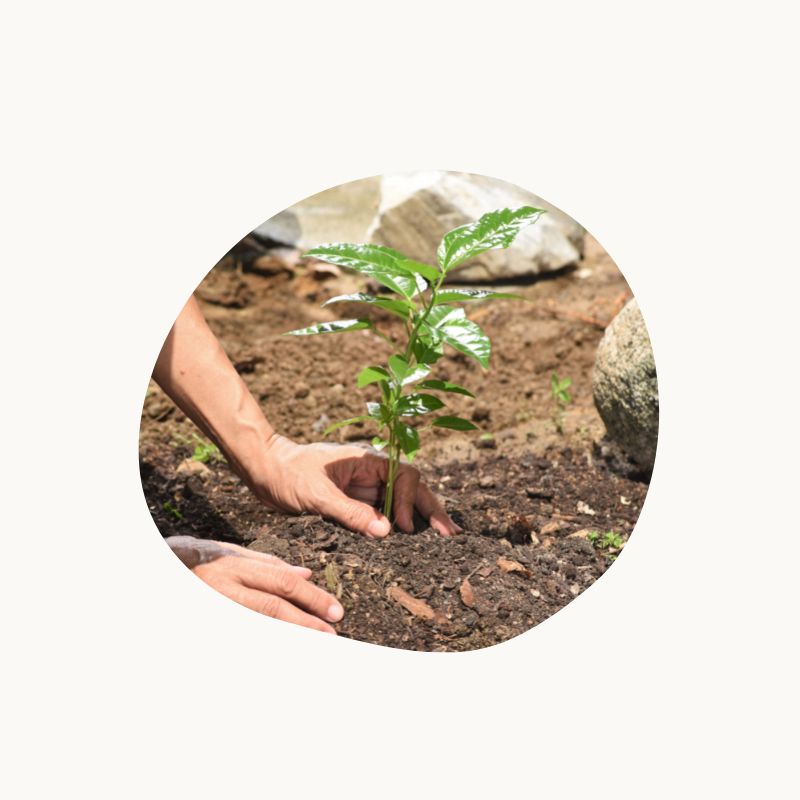
STEP 2
Give it space and room to grow
When considering a spot for your plant, choose somewhere that is at least an inch wider than the pot all the way round.
In a few years, your Elephants Ears can grow up to 30cm height and 45cm spread.

STEP 3
Give it some sun
Your Elephants Ears loves to be North facing, east facing, south facing, west facing and with Full sun, dappled shade, partial shade, full shade.
Plants that like the sun will enjoy sunny areas that warm up during the day. Southern facing gardens receive the most sun, and will suit plants that won’t frazzle in the heat. You can work out which way your garden faces with a compass (there’s one on your phone) which will point towards North.

Step 4
Check your soil
Soil type differs from garden to garden. Your Elephants Ears will be happiest if your soil is like any of these:
Well drained / light / sandy / chalky / alkaline / acidic
The texture and consistence of your soil is important also as it will determine the level of nutrition and drainage. If you think your soil might be the wrong type for your Elephants Ears, you could plant it in a pot or container instead!
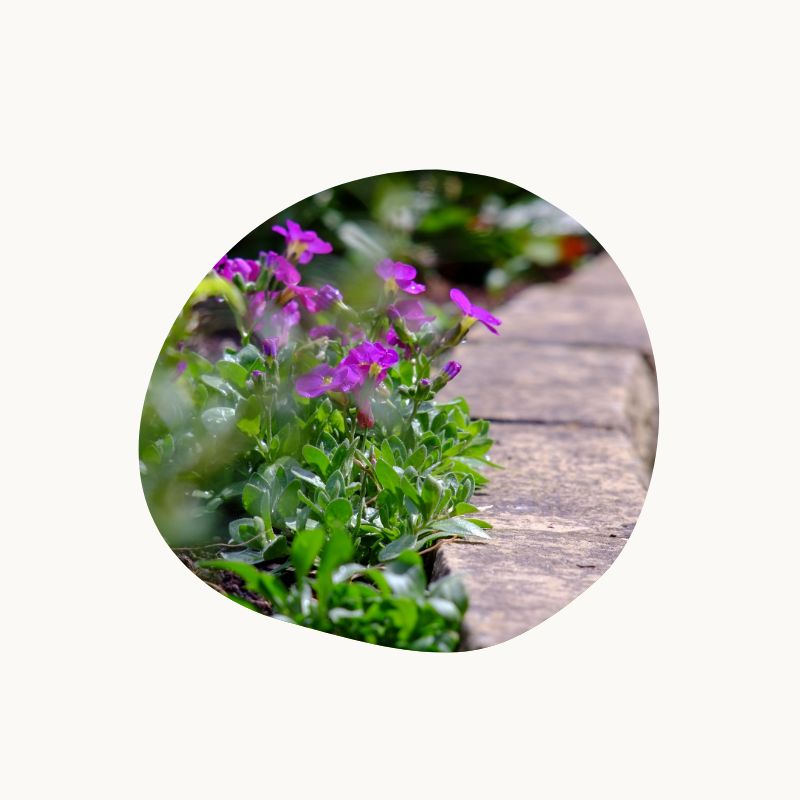
Step 5
Position in border
Picking the right spot to plant in a border affects how well Elephants Ears will grow and how the border will look overall.
Your Elephants Ears will be best Front
Care for your Elephants Ears
By following these care tips, your Bergenia will thrive and provide you with beautiful and large glossy leaves, and colorful flowers all season long.
-
Watering
Learn: Watering plantsBergenia is drought-tolerant, but it does require regular watering during dry periods. Be sure not to over-water, as this can lead to root rot.
-
Pruning
Learn: PruningPrune Bergenia in late fall or early spring to remove any damaged or diseased foliage. Cut the leaves back to the base of the plant to promote new growth.
-
Fertillising
Learn: FertillisingBergenia benefits from occasional fertilization during the growing season. Use a balanced fertilizer such as 10-10-10 or a slow-release fertilizer.
-
Pests & Diseases
Learn: Protect from bugsBergenia is generally pest and disease-free. However, watch out for slugs and snails, which can be controlled by using slug bait or copper wire.
-
-
Need some help?
Little Eden EssentialsOur Little Eden essentials course gives you all the basic skills you need to help your new plant thrive.
Your Elephants Ears Calendar
Our handy calendar helps you work out your planting and pruning seasons for your Elephants Ears.
-
Jan
-
Feb
-
Mar
Divide
-
Apr
Flowers, Divide
-
May
Plant, Flowers, Divide
-
Jun
Plant, Prune
-
Jul
Plan
-
Aug
Plant
-
Sep
Plant, Divide
-
Oct
Divide
-
Nov
Divide
-
Dec
Get more tips to your inbox
Join Little Eden and get garden tips and inspiration, exclusive discounts, straight to your inbox.
By submitting your email, you agree to receive marketing emails. Unsubscribe at any time.
We're here to help
Ask us any question about your Elephants Ears and we'll be happy to help.

